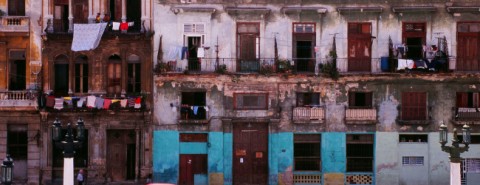Embargoed pensions

I visited Cuba 19 years ago, long before the recent softening of relationships between the Cuban and American governments. As a representative of the Presbyterian Church (U.S.A.), I was visiting the Independent Presbyterian Reformed Church of Cuba, which was established by Protestant missionaries in the late 19th century. The IPR churches had thrived over the years and had built a theological seminary at Matanzas.
After Cuba became a communist state the churches learned how to exist under the Castro regime’s strictures and subtle—and sometimes not so subtle—persecution. There were some arrests and imprisonments. Churches were mostly allowed to remain open, but evangelism efforts were forbidden, and it was almost impossible to print and distribute literature. Government agents often came to worship services; a Christian’s public affirmation of faith could have economical, professional, and educational consequences.
At the time of our visit a warming of the relationship between the two nations had come to a sudden end, and there was a reemergence of suspicion, hostility, and fear. Despite these demanding and sometimes dangerous circumstances, Cuban Christians had remained faithful to their Christian commitments and their churches.





